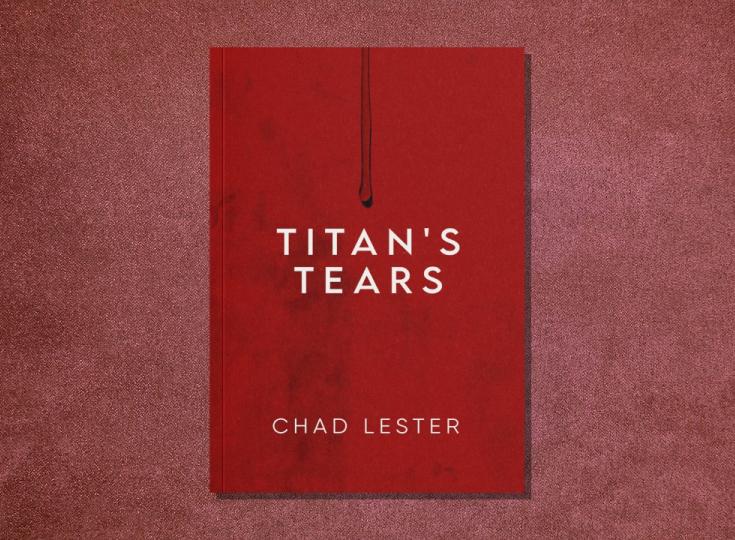Chad Lester - A Thrilling Fusion of Biology, Artificial Intelligence and Morality

Chad Lester is the author of the novel 'Titan's Tears' and the short story collection 'Continuum.' Chad Lester is the author of the novel 'Titan's Tears' and the short story collection 'Continuum.' Chad Lester is the author of the novel 'Titan's Tears' and the short story collection 'Continuum.' As our Author of the Day, he tells us all about his book, Titan's Tears.
What inspired you to write this book? Was there a specific event or idea that sparked the initial concept?
While I don’t consider myself a writer of a particular genre but despite my best efforts, I couldn’t help but be pulled into the subject of rapid technological advancement and its effect on us as a species—and particularly the lives of families and individuals. I was hesitant at first. The problem with writing science fiction is that the author will almost certainly be wrong in some way shape or form—and no one wants to be wrong. Or perhaps the work will be seen as quaint in a few decades time. That dissuaded me from wanting to write such a book as I felt it would age terribly. Of course, the alternative is that sometimes science fiction authors are right—though not always in a good way. Ultimately, I decided to hell with it and wrote the book anyway.
The concept that pulled me in most is what Ray Kurzweil calls “the law of accelerating returns.” That is technological progress is exponential in growth rather than linear. Granted, my view is that such growth only happens under certain economic and societal conditions. Ultimately, this means we will see technological advancement in increasingly short amounts of time. For example, there is a famous photo of a Civil War veteran, Bill Lundy, standing next to a fighter jet. It’s quite remarkable as the man lived in an era of horse-drawn transportation, smallpox, and musket balls made it to the age of jets, smallpox eradication, and nuclear power. Now there is an argument that the fellow may be a liar. Regardless, at his age in the photo, the technological changes he had seen are still remarkable and what will come in the future will be equally remarkable—should conditions allow for it.
The questions I asked myself was: how will this increasingly rapid change affect the social contract of species and ultimately how will it affect peoples lives? What ‘Titan’s Tears’ does is give a slice-of-life view of what could happen to regular people trying to go about their lives—albeit in a dramatic and fantastical way.

(Civil War veteran Bill Lundy standing next to a fighter jet, 1955)
The character Belle goes through a dramatic shift from a peculiar village to working for Sophia Eccleston on an isolated island. Why did you take this approach?
Belle very much represents a humble person being caught up in events beyond her control which she can only react to—nothing more. We see her character in the way she handles these situations in the strange world before her.
Sophia Eccleston is described as the world’s most brilliant scientist. Tell us more about her. What makes her tick?
The book presents a world dominated by a technocratic plutocracy, with Sophia at the helm. Sophia feels it’s her duty to make the world a better place. She is an extremely driven person who has achieved great wealth and success and naturally feels that, given her resources and abilities, that she is the best one to guide the species forward—to create progress. Sophia’s actions create a few questions: How do we define progress? Lastly, if technological innovation can be used to circumvent the ancient traditions of decision-making process for establishing governance, culture, and community—the fabric of the social contract—should it?
The novel involves unnatural events on an isolated island in Alaska. Why did you choose this setting, and how does it contribute to the overall atmosphere of the book?
I’ve lived and worked in Alaska for some time and can’t help but be enamored by it. Much of the state remains wild, harsh, and beautiful—I hope it stays that way. There is also a vastness and isolation to Alaska that feel fits well with the atmosphere of the novel.
Titan's Tears blends elements of biology, artificial intelligence, and morality. What inspired you to explore these themes, and how do they intersect within the story?
Chad Lester: Should our tools grow exponentially more powerful we will continue to see pressure on the social contract as we know it. Whether this pressure breaks the social contract, irreparably changes it, or creates a reactionary effect—I don’t know. Though I do know the effects will not be neutral as we have seen. Particularly over the last two hundred years. For example, automobiles have completely changed how Americans build cities. Planes and trains have made it far easier to move on a whim on what in the past would have taken months. These things affect the social dynamic of a given community. The atom bomb and missile technology has changed the dynamics of warfare. The birth control pill has changed sexual norms and in turn relationships and family dynamics. The list goes on and on. Generally speaking, when the entire technological-industrial base rises it unlocks new freedoms, controls, ideas, and temptations. I suspect society may find it increasingly difficult to manage these changes as they increase at a very rapid rate.
For example, the novel explores genetic engineering and bioprinting which will be further enabled by increases in our computing power. Such tools will allow us to cure a number of diseases and other ailments. It may follow a familiar pattern: First, it will be expensive and reserved for the rich. Then it will slowly become more affordable until even the poorest American can acquire it—with just a few easy high-interest payments of course. First, we will treat diseases and heal the suffering. Then we begin to try to enhance ourselves in some way. After that people may use it to radically alter their—or their children’s—biology based on whatever whim or trend catches their fancy. This then begs the question of what is ethical—and more importantly—who decides what the definition of these ethics are? Currently, we are exploring this very question in our society with the rise of postmodernism and the extreme relativism that comes with it. So the reason the book blends these elements together is because they are inseparable.
How do you balance scientific concepts with engaging storytelling to make the novel accessible to a broader audience beyond sci-fi enthusiasts?
Generally speaking, I started with the lives of the characters first and the environment second. It takes some time and effort to build the environment for the reader and another effort entirely to pull it all together. Still, many science fiction books are idea driven and I very much wanted to respect that approach and make the ideas of the book font and center. Even so, it was a challenge for me to try to get all these things to work together.
What are you working on right now?
Chad Lester: I am publishing a historical fiction novel called ‘House of Crimson Roses’ next year. It’s a character driven family saga set primarily in Civil War era Georgia. I also have a fantasy novel in the works as well.



